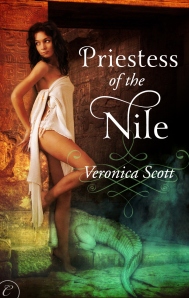 This one almost doesn’t look real, does it?
This one almost doesn’t look real, does it?
So, I have this cousin who lives in the South. For you non-US types, when I say South with a capital “S” that refers to the states in the southeastern part of the country. Pretty much anything east of Texas and south of the Mason-Dixon line, which is an old demarcation, and people will argue with it (just as many people would argue that east Texas counts as the South), but it works in general. The South has its own culture, way of speaking and values. These values tend towards strong belief in Christianity and a fundamental racism that continues to persist in the white population.
For example, the last time I was down South, visiting an old friend, her teenage son asked me why I put brown sugar on my oatmeal because “only colored people do that.” I was shocked speechless. I suspect he thought that, by not using the N-word, he wasn’t being racist. Being fundamentally polite and a guest in my friend’s home, I didn’t point out the multiple flaws in his argument. Still, I was terribly bothered that my intelligent, open-minded friend had raised a son who would think and say such things.
At any rate, my father is from the South, so I have family there. I’m not terribly close to them, since my father died a long time ago. Once my grandparents passed on, there was less connection. But my father’s younger brother had two sons and I’ve always valued my relationship with them, though it’s grown progressively more tenuous over the years.
On a visit about ten to fifteen years back, my younger cousin had a whole bunch of questions for me. He was a teenager at the time, with a keen and restless mind. I’m kind of an object of curiosity for them, having grown up out West in the Rocky Mountain states, with liberal ideas and a fancy education. There’s also a sort of mythology around my dad, who was selected to go to the Air Force Academy back when they took two guys from every state, based on academic record and a senator’s recommendation. It was a seriously big deal for my small town father, whose parents quit going to school at 12 and could never have afforded to send him to college.
My cousin asked if everyone out West was really smart and talked like I do. He wanted to know if I thought all Southerners were stupid. He said he saw people walking around with t-shirts that had fingers pointing to the person next to them saying “I’m with Stupid.” He wanted to know what I thought of that. They were good questions and I tried to answer them honestly. We had several good conversations about who he wanted to be and what he wanted to do with his life.
Later, he decided to go to Seminary and become a minister. His parents called to tell me the news and how terribly proud they were of him. I was surprised, but hoped he’d do well.
He and I talked on Facebook here and there. He studied languages and old texts, which made him happy and we had fun talking about those things. Now he’s a practicing minister and engaged to a pretty blond girl from his home town. I ignore the preachier things he posts. Sometimes I’m tempted to comment. I rarely do. Keeping the peace.
But, the other night, during the State of the Union address, he posted “Obamar got purdy werds.”
I haven’t shaken the crushing sense of disappointment yet.
I wonder what happened to the boy who thought wearing shirts that say “I’m with Stupid” lowers people. The guy who worried that the way he talked made him sound dumb. I really wanted to ask if all that study of Latin and Greek had made him forget how to spell in English.
Now, I should say that I know plenty of people who don’t like President Obama’s policies. I’ve had interesting debates with people and they often present cogent, articulate arguments for what they don’t agree with. But for this guy, who I know is smarter than this, to appeal to his buddies by lowering himself, just makes me sad. Worse, I know that a huge part for my cousin is that Obama is one of those colored people.
I don’t know that I have a point to this (now very long) post. I didn’t reply to the comment, so what I wanted to say to him has been burning in the back of my throat.
No, sweetie, not everyone in the South is stupid. Just the ones who choose to act that way.
 One good thing about dark winter mornings is that I’m awake for the sunrise. Not something I would otherwise make an effort for, but look what I miss in the summertime.
One good thing about dark winter mornings is that I’m awake for the sunrise. Not something I would otherwise make an effort for, but look what I miss in the summertime.




